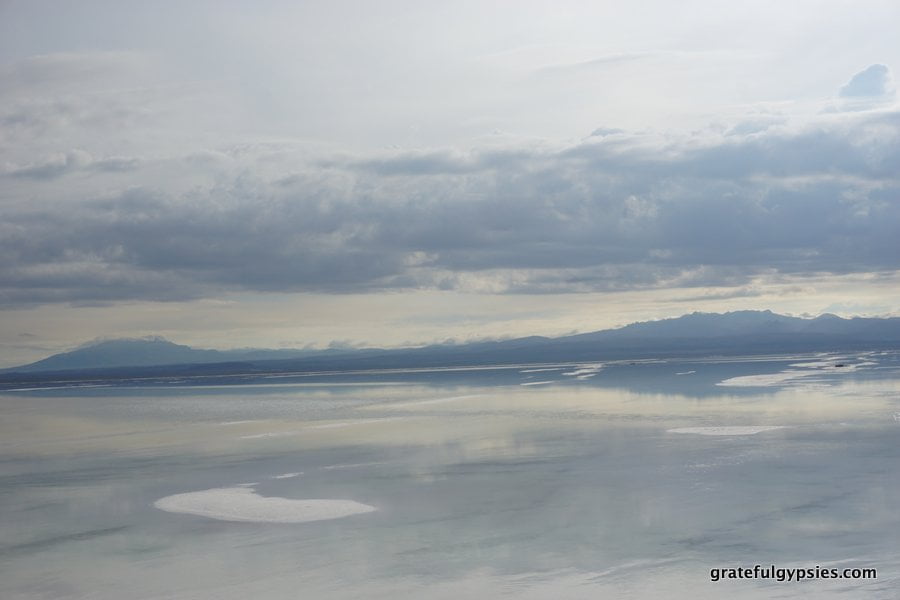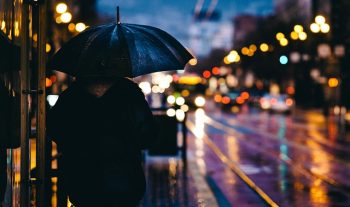Livin’ la Vida Cuarentena | Spanish Language Blog
Estamos viviendo en tiempos extraños (We’re living in strange times). Indeed, the whole world seems un poco loco (a little crazy) because of the COVID-19 virus. It has spread to all corners of the globe, including Latin America. At the moment, I’m more or less trapped in Medellín. It’s OK – Es una de mis ciudades favoritas (It’s one of my favorite cities). In this post I’d like to share a little update about what it’s like livin’ la vida cuarentena here in Colombia.
La Situación
Let’s start out with an important question – ¿Cuál es la situación del coronavirus en Colombia? (What’s the coronavirus situation in Colombia?). Well, here’s the official news as of today:
El Ministerio de Salud confirmó seis casos más de coronavirus en el país. Con estos, ya asciende a 108 el número de personas confirmadas con el nuevo virus (The Ministry of Health confirmed six more cases of coronavirus in the country. With these, the number of people confirmed with the new virus has risen to 108).
La semana pasada, el presidente Iván Duque declaró la emergencia sanitaria en el país (Last week, President Iván Duque declared a health emergency in the country). The country quickly moved to close the border with Venezuela, restrict cruise ships, and shut down large gatherings. Museums and schools were closed and football games were canceled.
They also banned anyone from traveling to Colombia except for nationals, their immediate family, and diplomats. It was also said that anyone arriving in the country from affected areas like Spain, Italy, China, and South Korea, Colombian or not, had to undergo a mandatory 14-day period of self-isolation. Muchos extranjeros fueron deportados (Many foreigners were deported).
This was because they were caught breaking the quarantine. Apparently anyone who was deported also got a 5-year ban on returning to Colombia for their actions. The current total is somewhere around 40. Ahora llevo mi pasaporte cuando salgo (Now, I take my passport with me when I go out). I arrived on February 1st from Mexico so I’m not under mandatory quarantine, but we’re practicing distanciamiento social (social distancing) anyways and I’m only leaving the house to buy groceries.
On March 17th, President Duque addressed the nation about the coronavirus pandemic. You can listen to the entire address from the president to practice your Spanish listening and reading if you turn on the subtitles:
Some of the points that President Duque made include:
- La pandemia es, sin duda, el mayor desafío de la humanidad en los tiempos recientes (The pandemic is, without a doubt, humanity’s greatest challenge in recent times).
- Es muy importante que no sea el pánico quien dicte nuestras acciones (It is very important that it is not panic that dictates our actions).
- Yo también soy hijo y padre y tememos todos por la salud y el trabajo de nuestras familias (I am also a son and a father and we all fear for the health and work of our families).
To read the entire address in Spanish, just click here.
Many different measures were put in place in order to combat the spread of the virus. Los adultos mayores de 70 años deberán estar en aislamiento obligatorio hasta el 31 de mayo (Adults over 70 must be in mandatory isolation until May 31).
La situación está cambiando muy rápido aquí (The situation is changing very quickly here). The city of Cartagena instituted a curfew, and Bogota announced it will have a trial-run of citywide quarantine lasting four days. Todas las fronteras están cerradas ahora (All of the borders are closed now) – land and maritime.
Earlier today, the president announced even more extreme measures to deal with the virus. Here’s a part of what he said:
Voy a tomar la decisión de por un periodo de 30 días suspender el ingreso de viajeros internacionales a Colombia, a partir de este fin de semana. Es una media que es dolorosa pero se hace necesaria.
(I am going to make the decision to suspend the entry of international travelers to Colombia for a period of 30 days, starting this weekend. It is a measure that is painful but it is necessary).
Whereas previously it was understood that Colombian nationals could still return and just go into self-isolation for two weeks, these new measures apply to everyone. That means that starting on Monday, even Colombians cannot travel here for at least a month. The president went on to provide more details:
Quiero ser claro, aquí necesitamos que la pedagogía se ejerza. Por 30 días vamos a limitar ese ingreso y lo hacemos en aras de tener controles mayores en nuestra sociedad. Se necesita el apoyo de todos. Estamos frente a una pandemia y esto requiere que todos contribuyamos.
(I want to be clear, here we need pedagogy to be exercised. For 30 days we are going to limit that entry and we do it in order to have greater controls in our society. Everyone’s support is needed. We are facing a pandemic and this requires that we all contribute).
You can watch this news clip to learn more:
Mi Experiencia
My wife and I thought about leaving a bit earlier than planned and heading back to Mexico, but we don’t want to travel unless it’s absolutely necessary. Plus, the Colombian government has responded to the pandemic much better than both Mexico and the US, in humble opinion…
Fui al supermercado varias veces esta semana y no fue tan loco (I went to the supermarket a few times this week and it wasn’t that crazy). I didn’t see anybody hoarding papel higienico (toilet paper), although it’s hard to find hand sanitizer or disinfectant wipes. We bought some extra canned goods and perishables and can stay in the house for a few weeks if absolutely necessary.
For the moment, it’s still possible to order delivery from certain restaurants with the Rappi app. In my apartment building, we need to go downstairs to meet the delivery drivers. There are bottles of gel antibacterial at the entrance and on the elevator, which also has a notice about the best practices during this pandemic, such as “Lávese las manos frecuentemente con agua y jabón por al menos 20 segundos” (Wash your hands frequently with water and soap for at least 20 seconds).
Somos afortunados porque trabajamos en línea (We are lucky because we work online). I’ve lost some writing work due to the worldwide halting of the travel industry, but I still teach English online. Mis estudiantes están en China y no pueden ir a la escuela en este momento (My students are in China and they can’t go to school at the moment).
After weeks of talking to them about what it’s like being trapped in the house, I’m beginning to experience it myself as the virus has traveled all the way here to Colombia. On the bright side, many of my students over there have been telling me they can finally leave the house and their parents are going back to work. As for us, we’ll just be livin’ la vida cuarentena for the foreseeable future.
¿Cuál es la situación con el coronavirus donde vives?
What is the situation with coronavirus where you live?
Posteado en Spanish Articles (Facebook)




